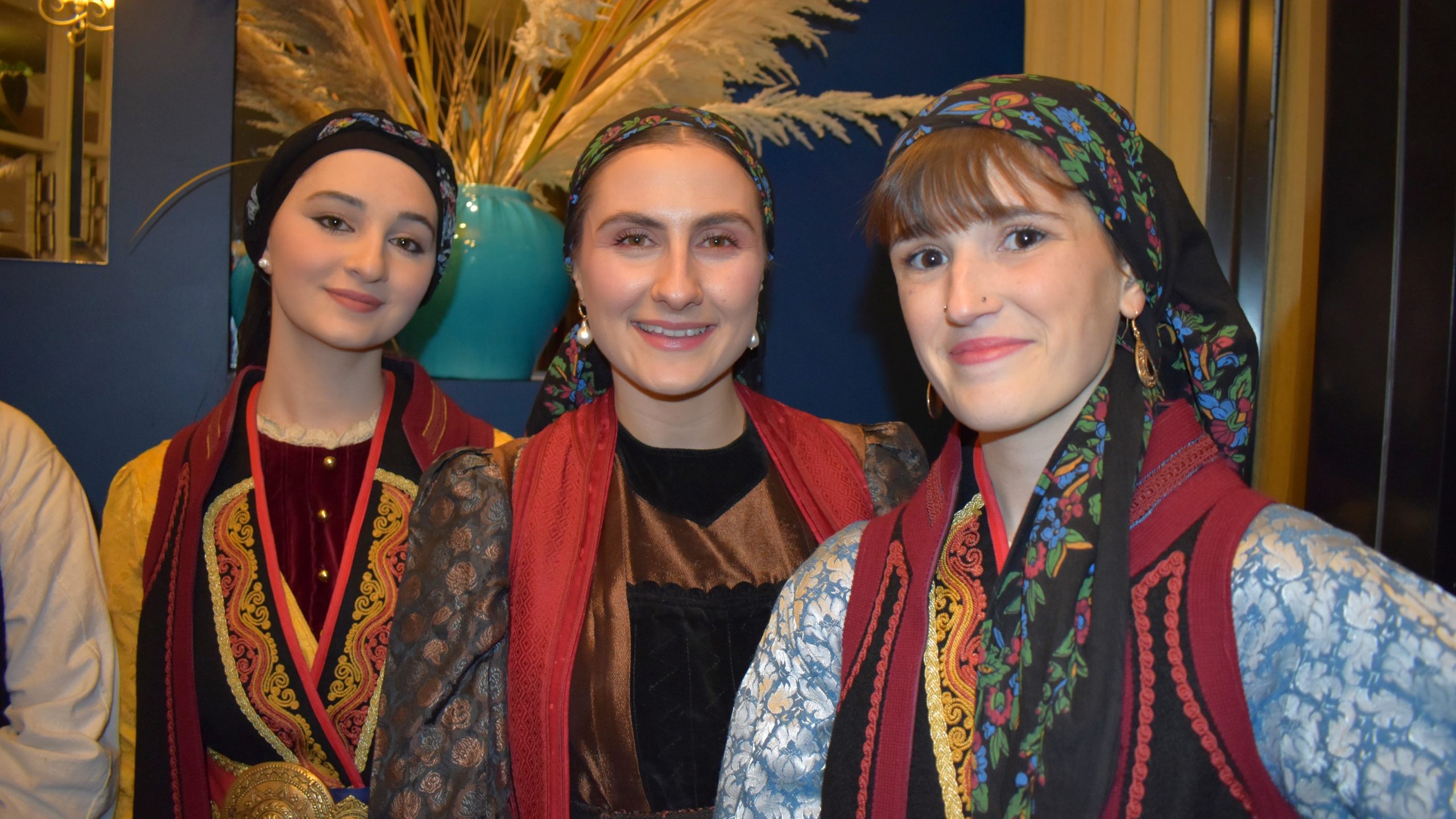By Mary Sinanidis.
The Greek Consul General to Melbourne, Emmanuel Kakavelakis, gave his fifth 25 March Greek Independence Day speech of the day on Saturday night, at the annual dance held by the Papaflessas Social Club. He said his first experience of Greek national day celebrations in Australia were “a very big surprise” and he was equally amazed with the naming of Kalamata Lane.
“The Revolution concerns us all, and doesn’t just concern yesterday,” he said, adding that there are many “open wounds” still in divided Cyprus and unforgettable lands, usurped areas once occupied by Greeks.
For the migrants present and their forefathers, however, the struggle has never been about going back and reclaiming what has been lost, but about acceptance, celebration, and relevance in modern Australian society. And there was plenty of that at Saturday night’s sold-out dance which coincided with the club’s latest victory – the arrival of the street sign for Kalamata Lane after Darebin Council made good on its promise to honour its early migrants.
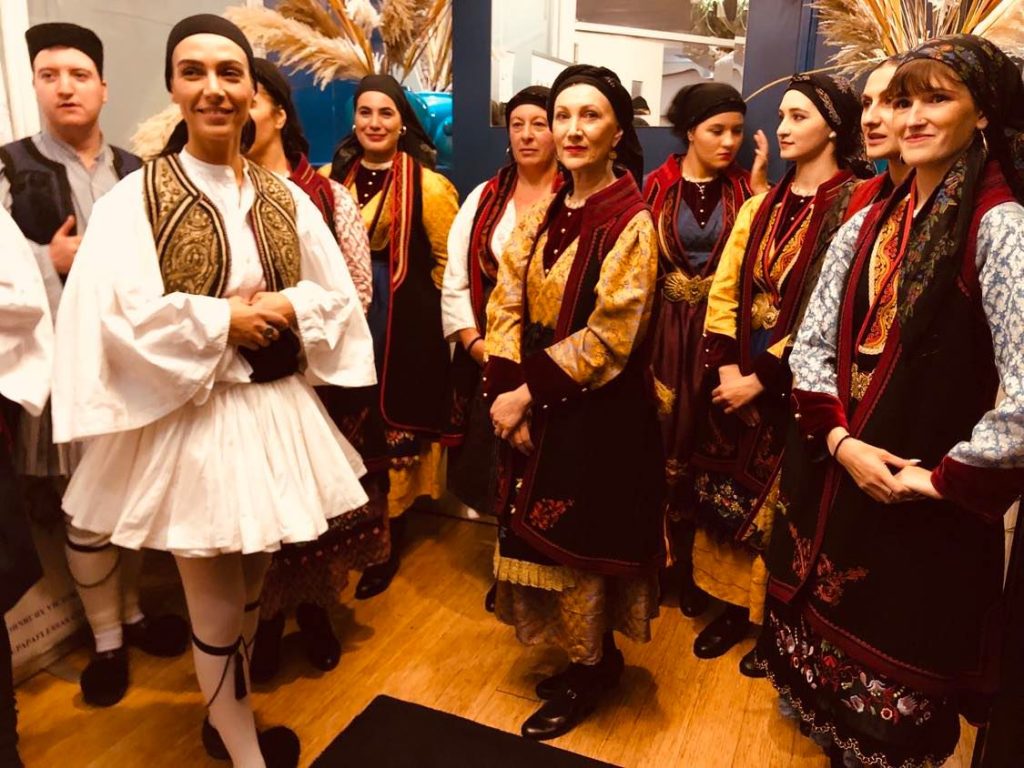
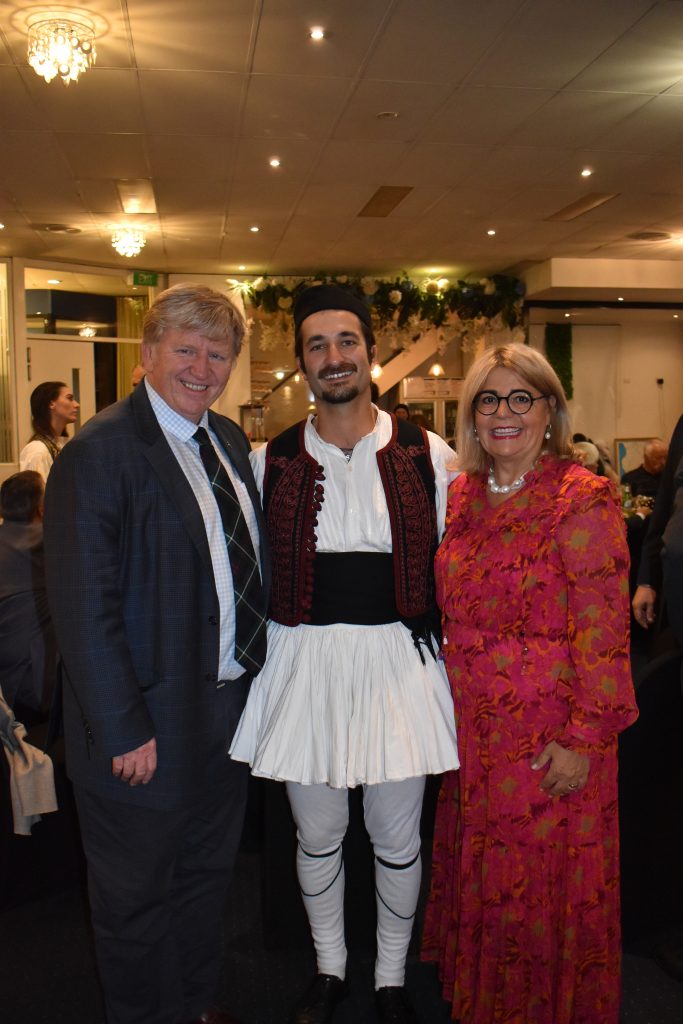
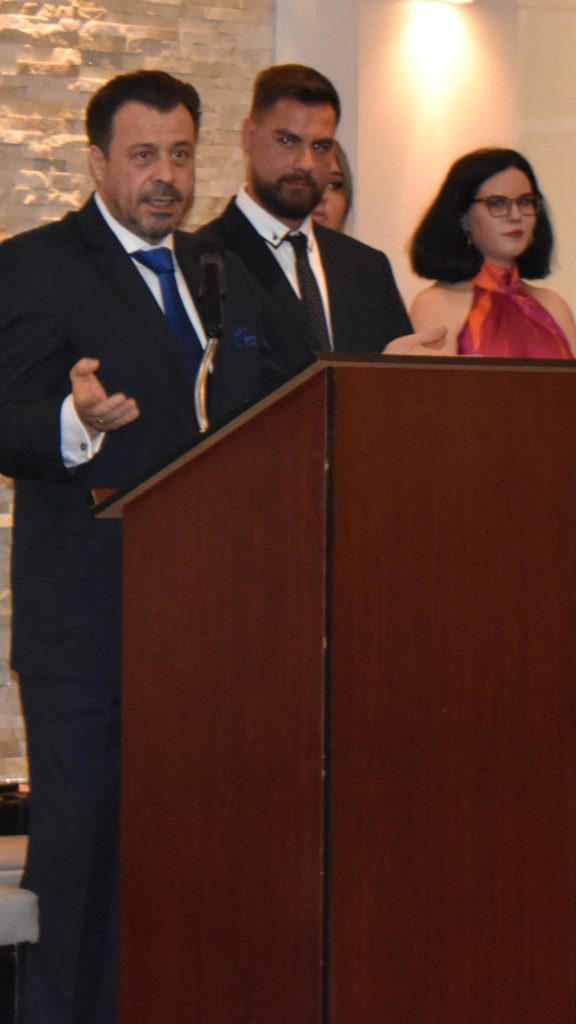
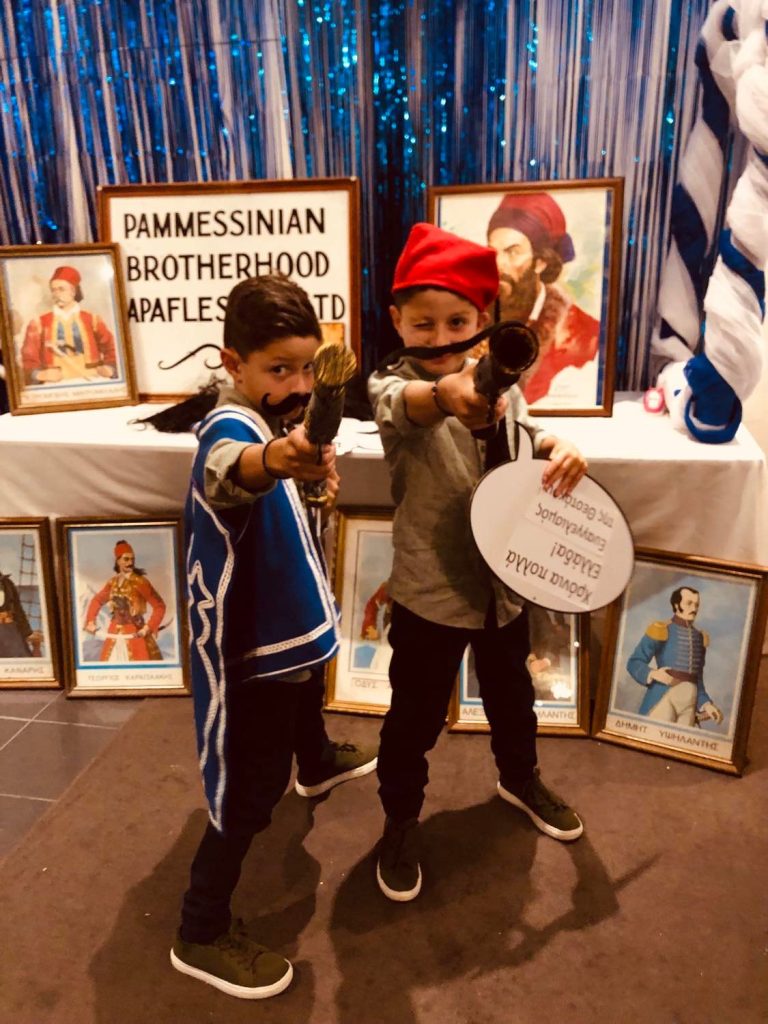
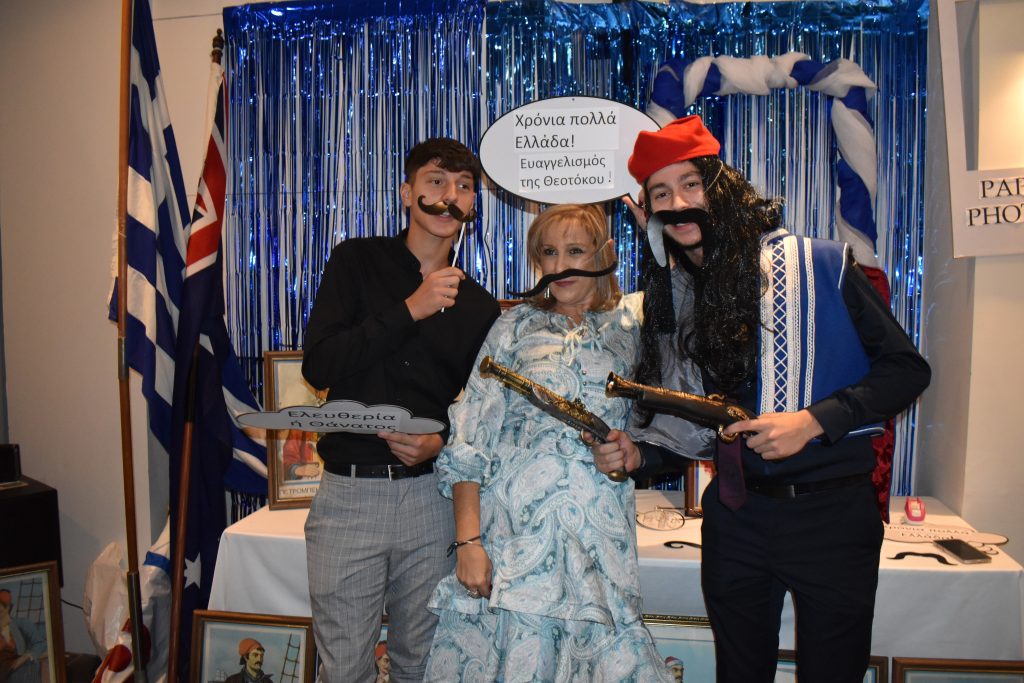
After campaigning by Darebin Councillor Emily Dimitriadis, Kat Theophanous MP and former MP Jenny Mikakos, the achievement is now not only real, but proof that even more great things are possible – including the naming of Darebin Square as had been suggested to two mayors by The Greek Herald and is being looked into.
Mary Tsaganas, who is on the Board of Directors of the Papaflessas Club, told The Greek Herald that future campaigns are being explored, and there will be power in numbers as the sign has also brought with it a renewed interest in the Club.
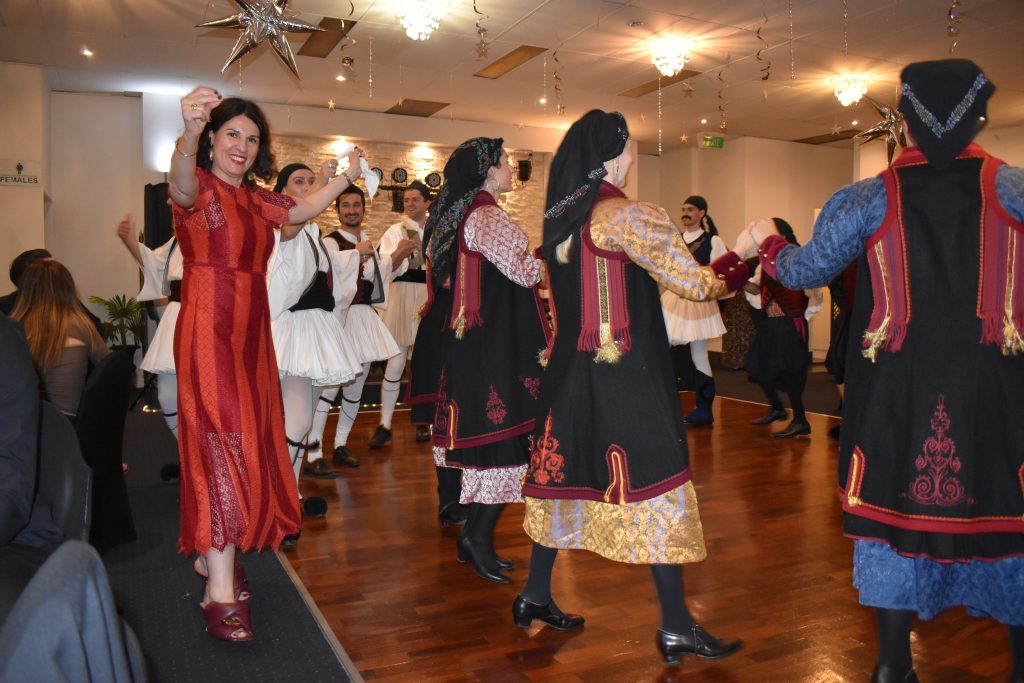
“The arrival of the sign has given people confidence that, as a committee, we’re not in it for our own egos but doing something that will create history and has created history,” she said. “And this is something that the younger generation in years to come will appreciate.”
The younger generation was in full force with tables filled with school-aged children, teens, recent university graduates for a truly intergenerational experience as had been the case in bygone years. What differed from bygone years, was that they didn’t just fill seats but saw themselves represented onstage with emceeing by the Committee’s youngest 20-something-year-old members: George Mastrogiannopoulos, Elleni Tzimas and Taksia Tsaganas, who did a marvellous job welcoming Lee Tarlamis MP, historian Jim Claven, Darebin City’s Citizen of the Year Nola Radiotis and other guests.
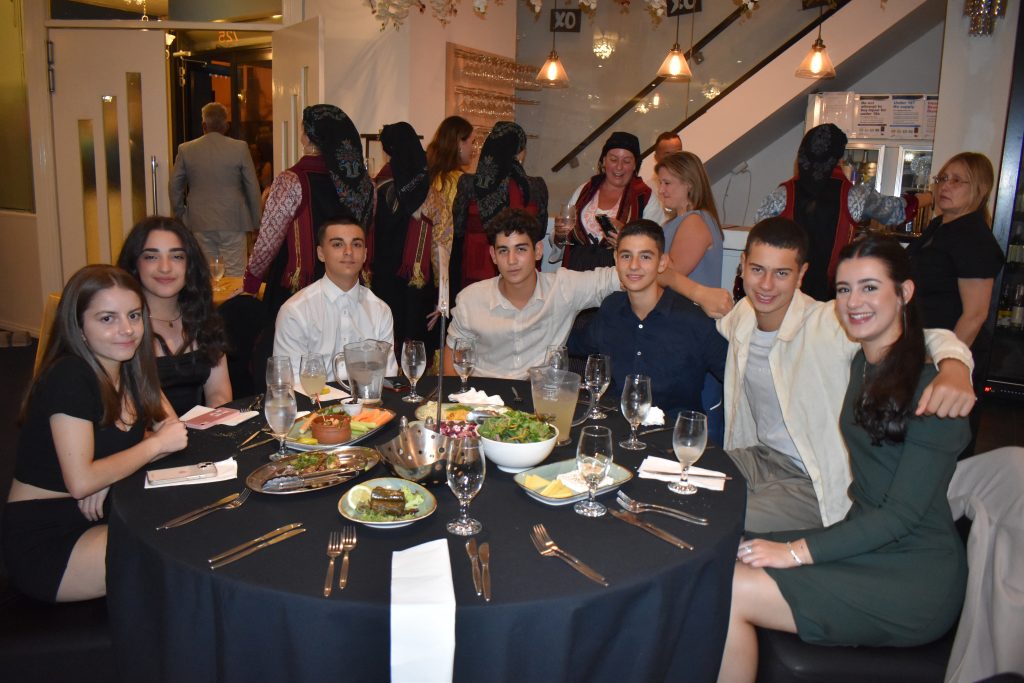
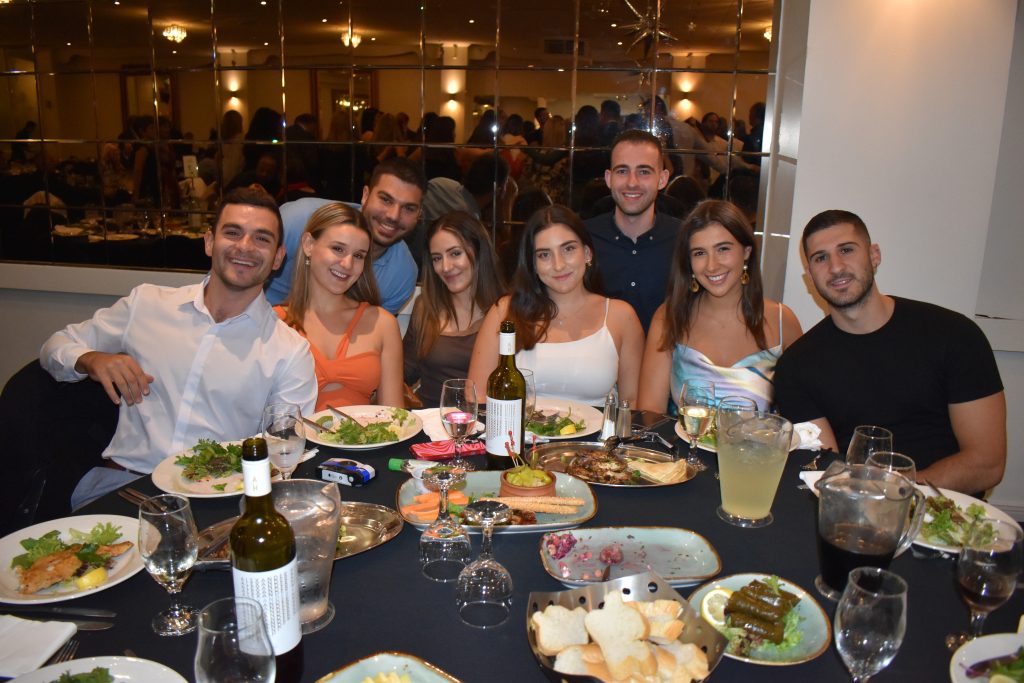
“For generations to come anyone who takes a walk down the lane can see our mural,” said Mr Mastrogiannopoulos (in Greek) and Ms Tzimas (in English), remembering the Messenian migrants who created the Club in 1959.
“Although they came to a completely foreign country on the other side of the world, they not only survived but they managed to keep a small Messenia in Australia, keeping their cultural and religious traditions alive. They became respected citizens in the Australian community making a strong contribution to Australian society.”
The youngest members of the 13-membered committee, comprised of six women and seven men, were most visible at the event. Older committee members are experienced public speakers in their professional lives, but purposely have taken a step back.
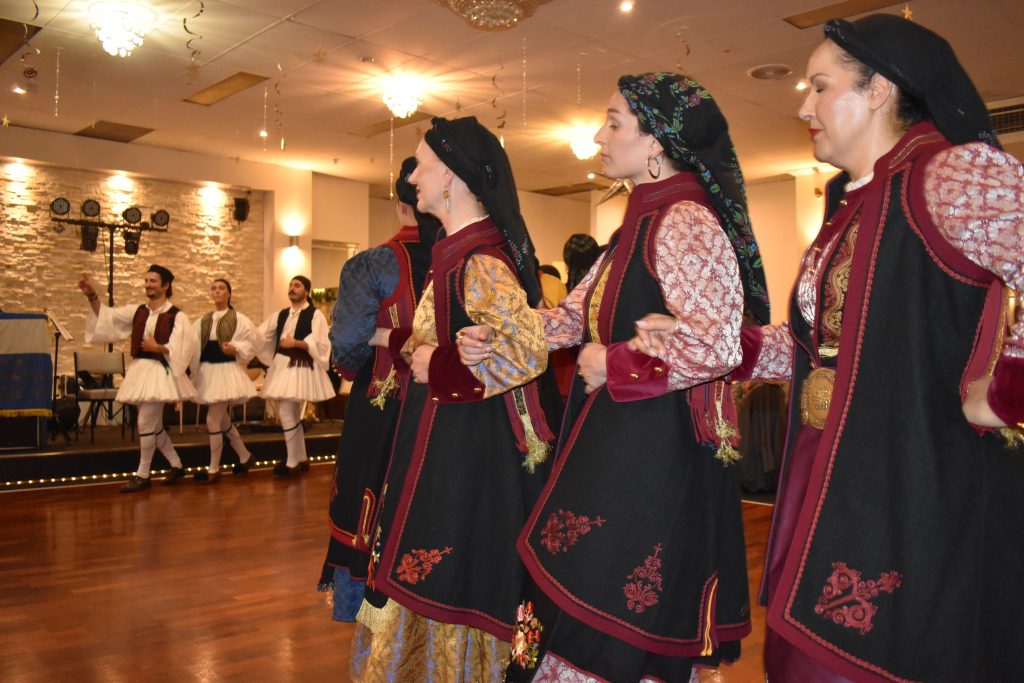
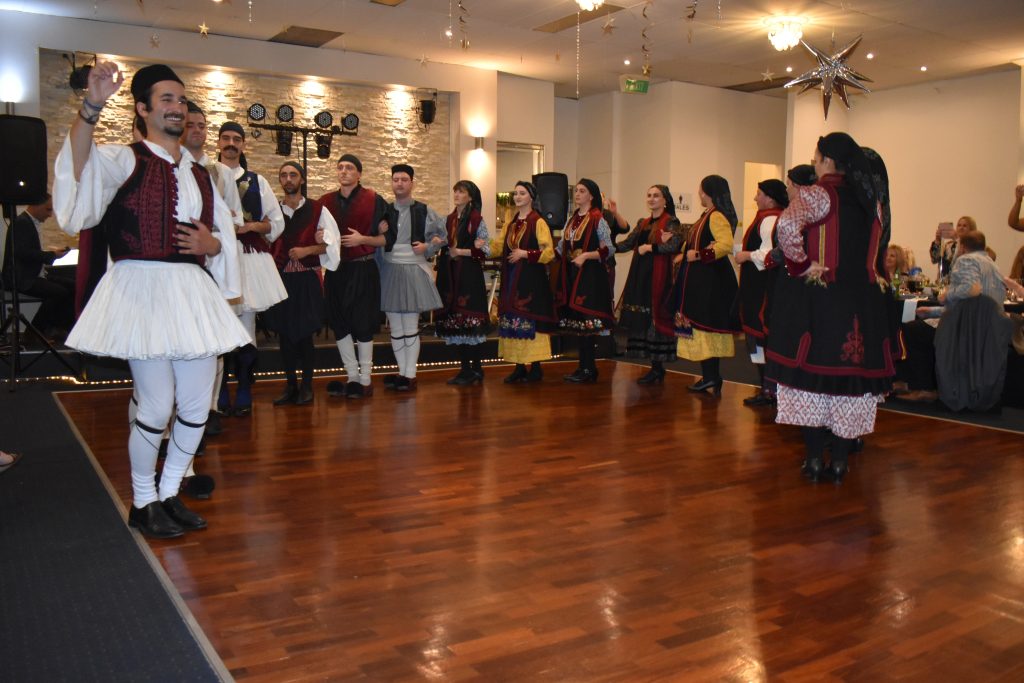
“It is good for our younger members to develop their public speaking skills. We want them to lead,” Ms Tsaganas said, adding that though she is not from Kalamata herself, she was attracted by the Club’s “progressive nature and doing things outside the square.”
Apart from more women and young people, the Club is inclusive in other ways. Despite being a Messenian group, it is less about having Messenian background and more about embracing the ideals of its namesake hero who popularly became known as Papaflessas (Grigorios Dimitrios Dikaios-Flessas). For this reason, the outreach stretches beyond the group’s registered members and even the City of Darebin.
Peter Giasoumi told The Greek Herald that Papaflessas has been supportive of the Greek Youth Generator, a group for 18- to 29-year-olds.
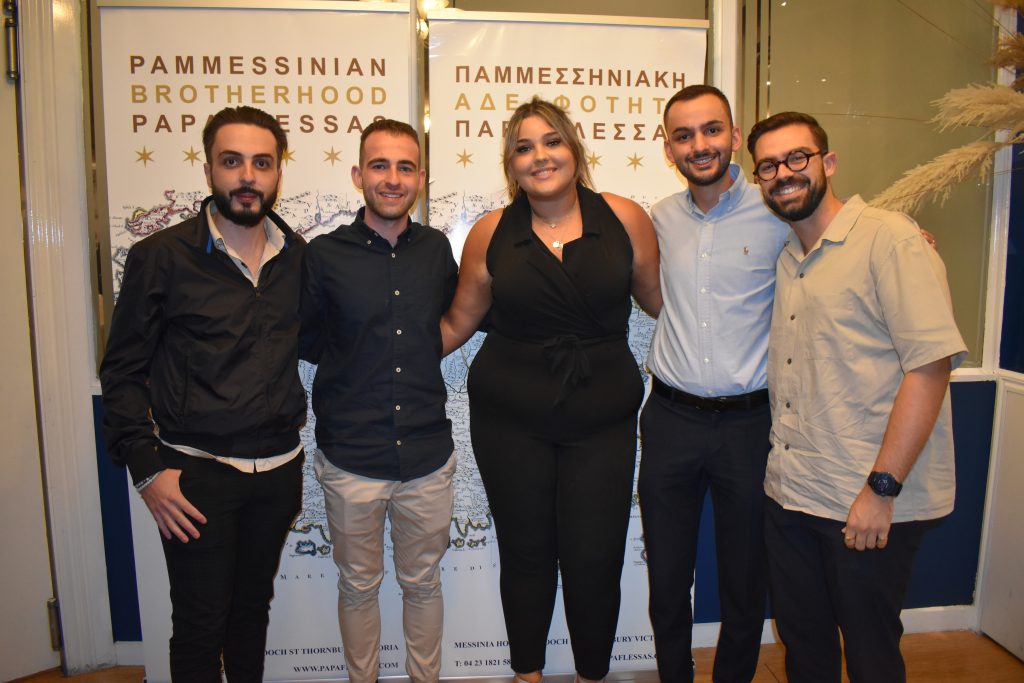
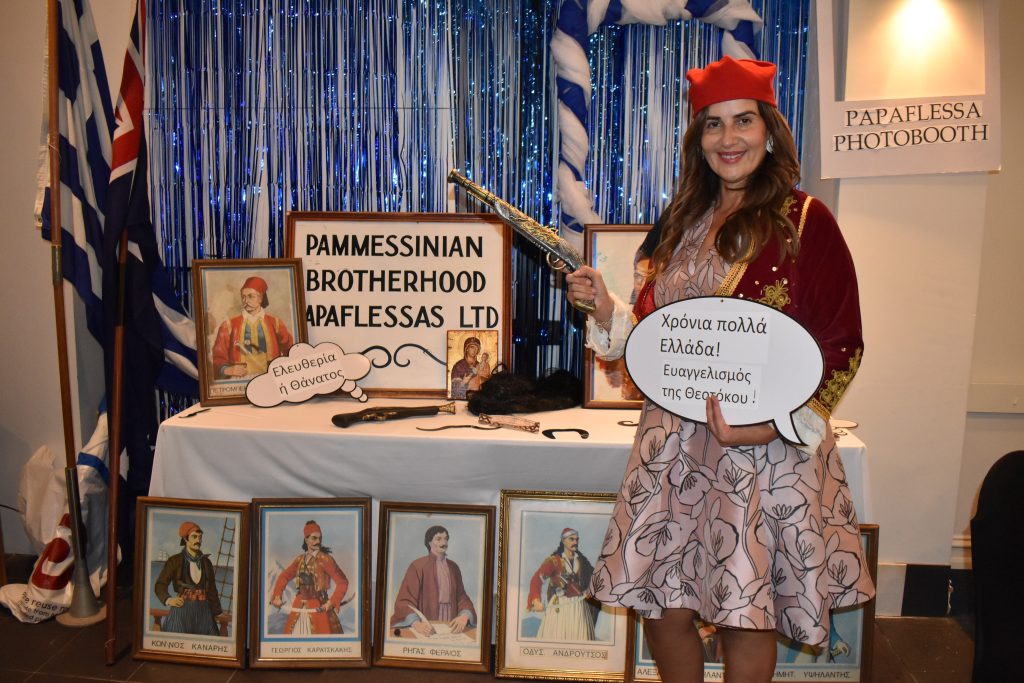
“We’re not Messenian, but Apostolis Sougleris (Papaflessas committee member) approached us after he saw what we were doing and liked it. We looked at ways we could work together, and the Club sponsored our film festival. It all came about organically,” Mr Giasoumi said.
Apart from drawing youth interested in exploring their cultural heritage, the Club is attracting more women with its progressive stance. Irene Tsianakas, a high school teacher and mother of two, said she had lost touch with the Club as it didn’t feel relevant to her until her sister urged her to attend a recent Vasilopita cutting.
“I thought about my dad who for years gave so much of the group but I didn’t understand it,” Ms Tsianakas said.
“Then I saw this beautiful mural, and inside the Club, found old reels. I asked the Committee if they’d agree to have these digitised and they agreed. When I saw the footage, I cried and cried because they were memories. They were kids dancing rock and roll and I never really thought of my parents in that light. Now, I want to do the same thing my parents did for this generation.”
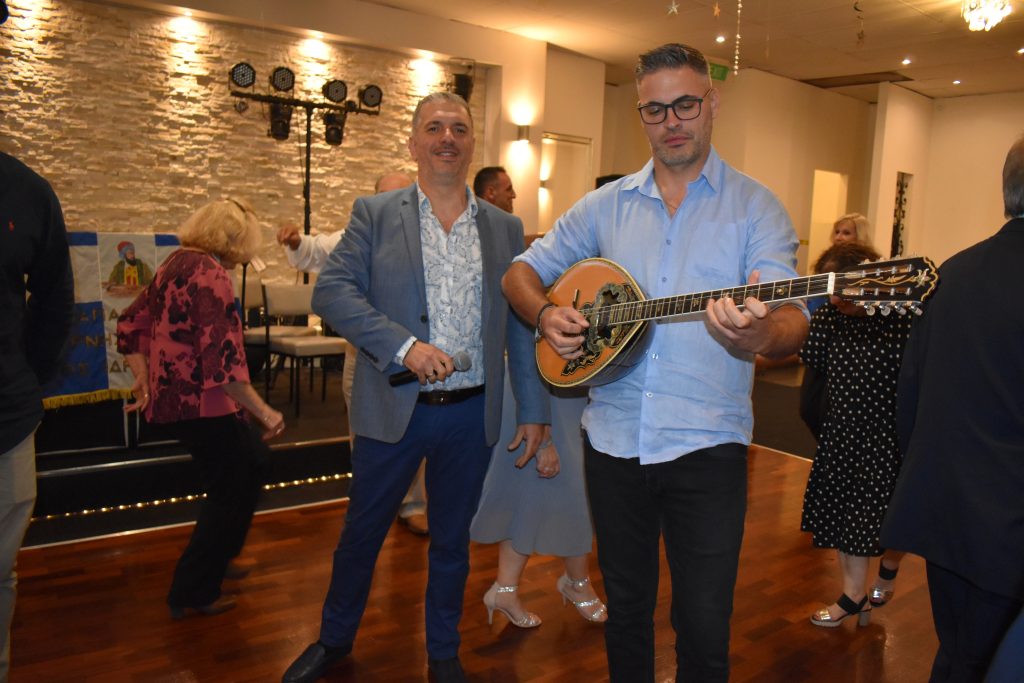
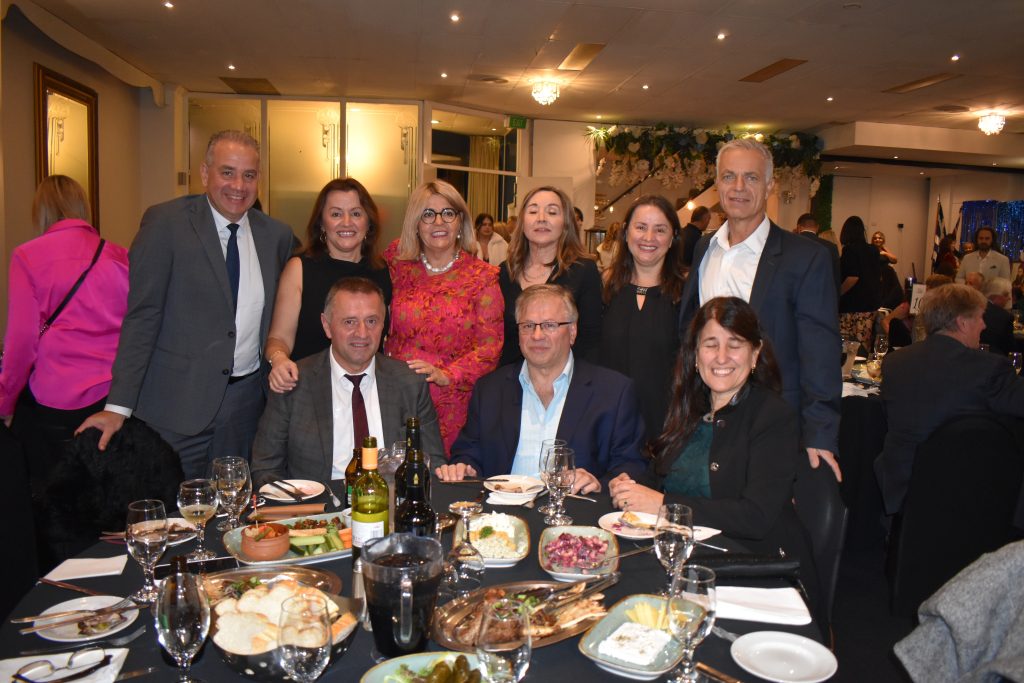
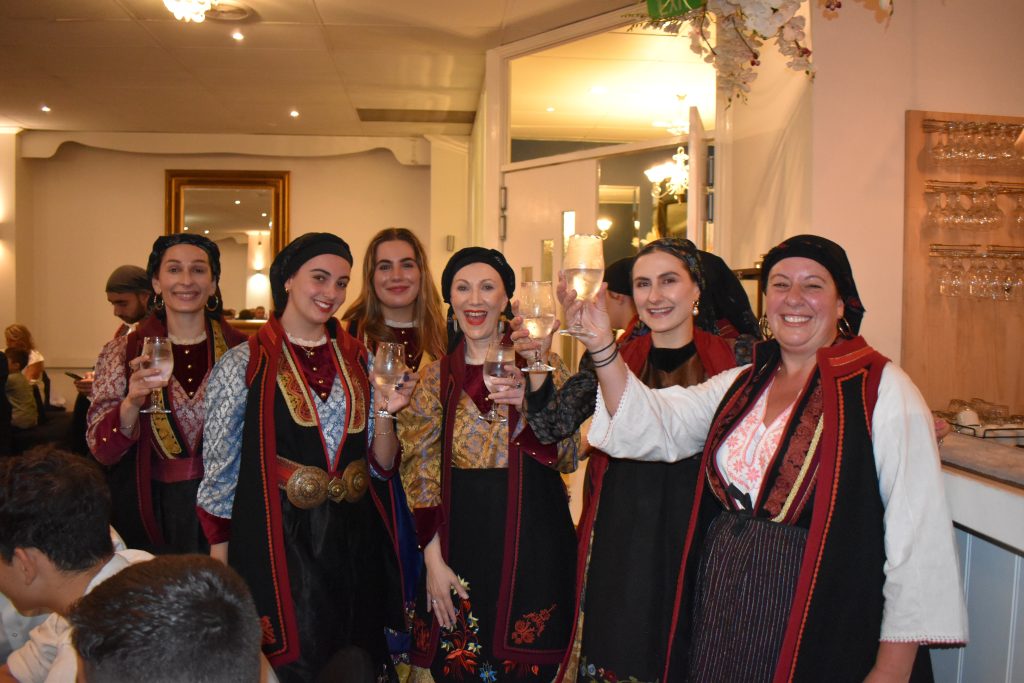
The old footage of early migrants was loop-played on a screen throughout the night, reminding those present where they had come from.
The example of the Thornbury club is an inspiration for Greek Australian groups, many of them languishing. But at the Papaflessas Social Club’s dance there were people present from far and wide, from different backgrounds, genders, all coming early to photograph the mural and newly-erected signpost.
For this reason, the Messenian story of the Municipality of Darebin is an interesting case study for clubs around the world.

